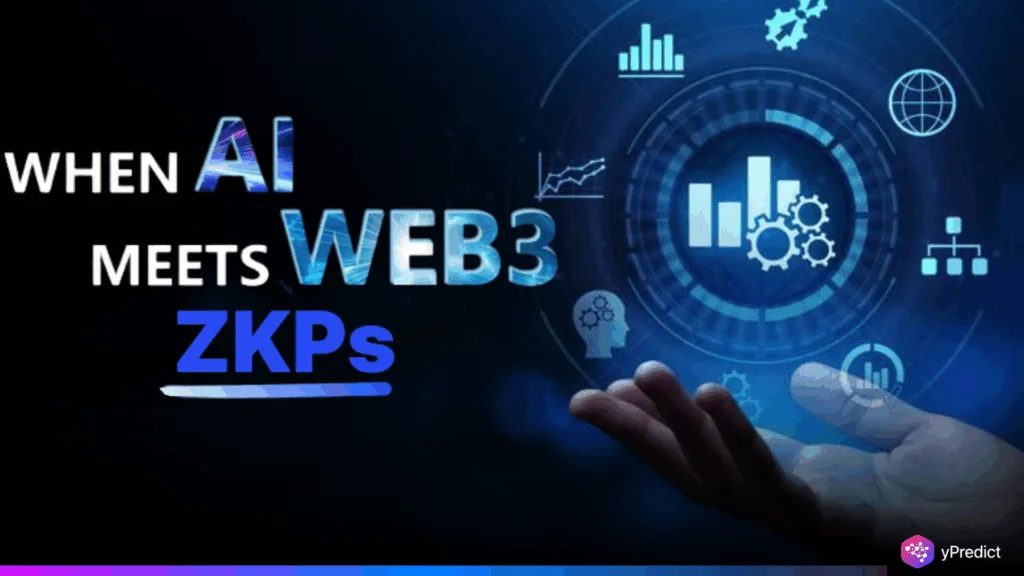
The convergence of AI and Web3 is incoming at speed, where zero-knowledge proofs (ZKPs) become one of the driving forces. ZKPs enable parties to prove that they have seen a particular set of information without having to publish the data itself, addressing one of the largest challenges on Web3, privacy on public ledgers. The more decentralized the internet grows, the higher the demand for trustless, secure, and privacy-enhanced data exchanges, particularly in combination with AI. Today, research indicates that ZKPs have the potential to open up massive economic potential, especially in industries that need secure computation in areas such as finance and healthcare. ZKPs are one way to enable emerging AI to be safely scalable and equitable, as this global AI economy scale nears the $50-billion mark.
Zero-Knowledge Proofs Enable AI to Scale Without Sacrificing Privacy
ZKPs are fast becoming a necessity when it comes to privacy maintenance of AI systems in which a large amount of data is required. Training with sensitive data (e.g., patient records or financial transactions) is problematic in traditional environments since revealing highly confidential information poses a threat to the trainer and the third party and may result in misapplication. ZKPs assist in addressing this by letting AI models learn on encrypted data. As an example, one might train an AI on diagnostic images in a hospital without disclosing any identities of patients. This is essential to keep data sovereignty, and yet take advantage of machine learning possibilities.
ZKPs help AI in improving its credibility. Regulators and stakeholders can make use of them to verify that an AI model was trained properly on clean, approved Datasets; they can even verify that it was trained on clean, approved Datasets. They do not require access to top-secret internals to know that it was properly trained on untainted Datasets. Such a form of model integrity checks is particularly useful in financial, military, and health care applications.
Decentralized Systems Use ZKPs to Build Trust Without Exposure
Web3 provides the promise of decentralization, but without privacy, it cannot provide a modicum of trust. It is here that zero-knowledge proofs are turning the tide. The transactions made in a public blockchain are, by design, open to view. ZKPs reverse that story; the users could demonstrate truths (such as ownership of an asset or credentials) without disclosing confidential information. It is a massive success in sectors such as DeFi, where the platforms must verify transactions or identity but are unable to jeopardize the privacy of their users.
In identity management, ZKPs allow decentralized identity systems in which users can verify they satisfy some kind of condition (such as being over 18 or a resident of a country) without surrendering other personal information. This establishes a safer and more efficient onboarding of fintech apps, DAOs, and regulatory-compliant protocols.
On the infrastructure side, ZKPs are powering zk-rollups, scaling solutions that bundle thousands of transactions off-chain and verify them on-chain with a single proof. This not only improves transaction speeds but also slashes gas costs, helping platforms scale sustainably.
ZKPs Unlock AI’s Potential While Protecting User Trust
Zero-knowledge proofs are becoming a very significant tool in the tech field, without drawing a lot of attention to themselves. They enable scaling AI with data remaining private, secure, and verifiable, which are the three key ingredients in ethical innovation. They are solving trust and scalability problems together in the Web3 world, unlocking decent identity all the way to cross-chain DeFi possibilities. As AI tends to change industries and Web3 is just defining itself, ZKPs will be at the center of this change. And assuming privacy is the price of digital progress, perhaps the only tech that can eliminate that price altogether is ZKPs, opening the door to the next phase of secure, decentralized innovation.






